Book review: The Sermon on the Mount: The Key to Success in Life
by Emmet Fox
★★★★
I guess I blew it with the timing of this review. This is a beautiful hardbound reprint of a 1934 classic, clearly meant as a gift option. The publication timing of November 2012 hints of a Christmas gift. Did any of you get Amazon or Barnes and Noble gift certificates for Christmas? My apologies, HarperOne, for not jumping on this sooner, to get the word out.
Let’s start with the dirt on Emmet Fox (1886-1951). He was a spiritual teacher, and served as minister of the Divine Science church in New York during the depression years. “Divine Science” is a New Thought branch, which appears to me to be a watered down version of Christian Science. An emphasis on healing remains, focusing on prayer and positive thinking, but with a little more room for the medical profession to step in where needed. At least, that’s my take.
Fox’s work here on “The Sermon on the Mount” became popular with Alcoholics Anonymous, though it seems to me a bit more ethereal than many current-day A.A. attendees would appreciate. Subtitles abound for this work: not only is this book (and Jesus’ sermon) the “key to success in life,” it is “the timeless manual on the power of positive thinking” and “the classic manual for harmonious living.” You aren’t going to get converted to orthodox Christianity by Fox–“all the doctrines and theologies of the churches are human inventions built up by their authors out of their own mentalities, and foisted upon the Bible from the outside”–but Fox’s appreciation for Jesus still shines. “Higher Critics” are missing the point of the Bible, for it is but a spiritual treatise. As such, you must learn new meanings for many of the words in the Bible: “prosperity,” “earth,” “heaven,” “heart,” these don’t mean what you think they mean.
The great Law of the Universe is this: what you think in your mind you will produce in your experience. Lovers of The Secret will also love Emmet Fox, especially if you have a love also for Jesus, the Master Metaphysician.

Book review: The Gay Disciple
by John Henson
★★★★★
I enjoyed this one! This is fiction, building upon the story of several notable but sketchy characters in the New Testament. Henson modernizes the names and nicknames of his characters (Jim for James, Rocky for Peter), which added to the enjoyment for me. I found myself embracing the puzzle of figuring out who the characters were in the Bible.
All characters tell their story in first person, beginning with Lazarus, the man whom Jesus raised from the tomb. Lazarus is presumed to be the “Beloved Disciple” of John’s Gospel, a conclusion Henson considers “undoubtedly” true, and that the Gospel writer “could hardly have made any more clear.” Henson shares this opinion with other recent scholars, including Ben Witherington (see Revelation, The New Cambridge Bible Commentary) and a fascinating book by James David Audlin that I’ll be reviewing soon. In my own book about John’s Gospel, I also tie Lazarus to the Beloved Disciple, so I am sympathetic to the arguments.
Henson goes a step further with Lazarus. Who is this grown man, greatly loved by Jesus, living with his two sisters on a large estate? Speculation helps fill any void, so Henson makes him gay, and Henson’s lessons through his semi-fictional characters are not exactly subtle. Jesus and Lazarus soon embrace, a bit more intimately than one might expect. But is this inappropriate topic matter, or uncomfortable for Christian readers? The Beloved Disciple, you recall, reclines on the breast of Jesus at the Last Supper. Says Lazarus, as he bemoans not being able to tell his story, “Maybe for my lifetime, maybe for many hundreds or even thousands of years, my story would be taboo, until that day came when Christians would no longer be afraid of love. I wanted to tug at John’s sleeve, ‘Tell them how beautiful [Jesus] looked! Tell them about his glistening hair, his twinkling eyes and his hairy chest!'”
As it turns out, nowhere in the book is Jesus portrayed as gay; only that Jesus feels no discomfort at sharing a physical closeness with Lazarus, the same as he does with any disciple, male or female. Jesus’ favoritism toward Lazarus exists (at least in Lazarus’s mind), but is actively tempered.
From Lazarus, we move on to several more characters, and I won’t spoil your enjoyment by listing them. I’ll just say the book got better and better for me as it went. If there is a common theme surrounding Henson’s choice of characters, it’s that each feels marginalized or unsettled before meeting Jesus. This is not an evangelical book, merely a book about the atmosphere Jesus brought to all he came in contact with. It certainly doesn’t solve life’s problems or explain all the mysteries of what happened in the first century. But at the same time, this book won’t be quickly forgotten.

Book review: The Meaning of the Bible
by Douglas A. Knight and Amy Jill Levine
★★★★★
Fascinating reading! Definitely a book that will be on my top-10 list this year. It took me forever to get through it, simply because there is so much information. I might have worn out a highlighter on this one.
You may have read Law, Power, and Justice in Ancient Israel by Knight a year ago. I reviewed Levine’s book, The Misunderstood Jew, last year: see http://www.dubiousdisciple.com/2011/09/book-review-the-misunderstood-jew.html These are two very knowledgeable and interesting scholars, who have now collaborated on a new project.
The focus is on the Old Testament (the Jewish scriptures), and the Jewish flavor is evident. Be forewarned: it’s a liberal treatment, perhaps unappreciated by conservative Christians. Be aware also that it doesn’t provide the meaning of the Bible, as if any one such meaning can be discerned from so diverse a collection of writings and opinionated Bible authors. But if the world of the Bible fascinates you—from its political atmosphere, to its social and cultural aspects, to the battle for authority between the northern and southern kingdoms, to the hope and hopelessness of dispersion and captivity—this book won’t disappoint. An incredibly rich history awaits, as you journey into the power struggles between kings and prophets and Deuteronomists, and the religious atmosphere pervading it all. Bible times were certainly not an era of separation between church and state.
In four parts, Knight and Levine discuss the development of the Bible from many different angles, including:
1. Ancient Israel and the settlement of Palestine.
2. Law and Justice in Israel and the Diaspora
3. Respect and understanding of the Divine, including the temple cult.
4. Emerging politics, economy, sexuality, and what it means to be a “chosen people.”
5. Wisdom literature, including the theodicy of Job
Sounds dry, doesn’t it? Not even a little. Knight and Levine may not deliver on their promise to explain the meaning of the Bible, but they certainly bring the Bible alive … and yet reach a melancholy conclusion: the Bible is not a book of answers, but of questions.

Book review: Sex God
by Rob Bell
★★★
Relax, folks, this is not a call to worship Yahweh like some kind of fertility idol. It’s just another of Bell’s weird book titles.
I’m a Bell fan, but I confess this wasn’t one of my favorites. If we’re gonna talk about this stuff, well, there are lots of interesting passages in the Bible about sex, sexuality, and the sexes. But Bell ignores all the interesting discussion, and zeroes in on two basic themes:
1. Sex is a reality of life. We’re not animals and we’re not angels. (I’d argue that we’re both, but I’ll save that for another time). The Bible says we’re higher than the animals, and we’re higher than the angels! Sex should not degenerate into animalistic urges, but neither should we pretend we’re sexless beings like angels. It’s a special, if confusing, gift.
2. But don’t do it until you’re ready for marriage. In the Bible, sex was the final, binding act of a marriage. It is not the ceremony that joins two people together forever, it is the carnal act, and this is God’s way.
Bell plays more of the role of a pastor than a teacher in this book, so I found it less interesting than his other works. But maybe it’s just what you’re looking for.

Book review: A Bible Book of Chess
by Sheila Deeth
★★★★
Here’s a cute little book for you. I couldn’t resist, because it combines two of my loves: chess and religion.
This is a primer for children, beginning at the very beginning (how to move the pieces) and touching only the basics of strategy. There really isn’t much “religion” involved … just enough to give it a proper flavor for a Bible camp where Sheila was asked to teach. For example, the book begins with the story of how Noah sailed a ship and landed on a high mountain, where he was saved. Well, the chessboard is your world for this book, and if you don’t steer toward the mountain (the center four squares) you are going to be in trouble.
Sheila is a writer with a background in various Christian branches; her husband serves as the chess expert, being a former Utah State Champion. But it’s Sheila who was coerced into teaching chess at a grade school, and she’s since accumulated thirteen years of teaching chess at the primary and secondary levels. The experience culminated in this new training aid for children. It’s illustrated, complete, and simple, and contains a number of suggested learning games to reinforce the ideas. For example, kids are encouraged to play a game with nothing but pawns, to see who can be the first to get a pawn to the 8th rank.
Pick it up with a new chess set for your young reader this Christmas!

Book review: Miracles
by C. S. Lewis
★★★★
How I’ve missed C. S. Lewis! I picked this book up to read for a book club, and settled into it like conversing with an old friend.
The topic is miracles. Do they exist or not? Do they contradict Nature or not? This is not a nuts and bolts proof book; it is a call to see miracles in a different light. There is, for instance, nothing miraculous about turning water into wine … nature itself can do this. God has created a vegetable organism that can turn water, soil and sunlight into a juice which will, under proper conditions, become wine. Wine is merely water modified. Should it surprise you that one day, God short circuited the process, using earthenware jars instead of vegetable fibers to hold the water?
As in this example, Lewis’s arguments sometimes amount only to warm fuzzies. Pantheism, he explains, is nothing special, for people are merely predisposed to believe this way … pantheism has hung around like an unwanted parasite from the beginning. In contrast, the story of a dying and rising God is surely true because nature itself teaches this concept, as any farmer knows. Now, beneath the surface, these two arguments are similar, but Lewis manages to draw the desired results from each with a bit of conversation made elegant in one circumstance and ugly in another.
Lewis errs also in his science, imagining that “every event in Nature must be connected with previous events in the Cause and Effect relation.” We know better today (Lewis was writing in 1947), and thus the foundation crumbles for many of his arguments against Naturalism. (Lewis attempts to argue that there must be a God who is not a part of Nature, and reasons that this God must surely be our creator.)
But it’s the way Lewis writes that so grabs the imagination! I absolutely love reading his books. There is a spellbinding discussion of Morality and Human Reason herein (their divinity earns their capitalization). Yet I cannot honestly award the book five stars, because Lewis never accomplishes what he sets out to do. Lewis’s God is elegant and beautiful, but no less unlikely for Lewis’s efforts, and must remain a matter of faith. Yet for those who already believe in this particular God, this book cannot fail to lift their spirits.
Very much recommended.

Book review: Revelation: The Way It Happened
by Lee Harmon
★★★★
This review comes from Pastor Jeff’s website: http://pastorjeffcma.wordpress.com/2012/06/13/revelation-the-way-it-happened-a-review-or-the-future-isnt-what-it-used-to-be/
*********
There is certainly no book of the Bible that attracts attention like the book of Revelation. People seem either fascinated, frightened, or confused by it–or maybe all of the above. It is commonly said that if you read 25 books on Revelation you would get 26 different opinions and there is probably an element of truth in that.
Revelation, as a work of ancient apocalyptic literature, is a familiar entrance into a very unfamiliar genre of writing. Much of the church has read these many cosmic symbols and cataclysmic events as a figurative description of what will transpire at the end of time climaxing in the second coming of the Lord Jesus Christ. But such a futuristic interpretation, while being widespread, is certainly not the only understanding “out there” even among evangelicals. What about the possibility that the description John gives in his vision is not about what will happen at the end of time, but what did happen shortly after his writing it? In theological terminology this is know as the Preterist view and that is what is presented to us in “Revelation: The Way It Happened” by Lee Harmon.
Even though the author is both theologically liberal along with being an adherent to the Historical Jesus school of thought, thereby having a far different biblical understanding than I would have, I found much to appreciate about this text. Even though he offers a “verse by verse” treatment of the “apocalypse,” do not expect the rather dry & dusty exegesis one might receive from far too many commentaries.
Lee has provided not only a wealth of textual and historical information alongside his own commentary, but we are provided his preterist interpretation through the eyes of a father and son as they live through these “apocalyptic” events. And then as a further aside we find a sprinkling of anecdotes from the likes of Nero himself. All of that to say, that even if you find yourself in theological disagreement, you will simply enjoy reading the book. While a review is no place for a theological debate, I would certainly take issue with some of the book’s conclusions.
My main concerns with the text are twofold. First, while such an historical treatment has much to offer, there are some places which, from a desire for a “perfect” fit I will imagine, the author presses a bit too hard on some of the details. This runs the gamut from some of the cosmic signs to a composite of “Johns” and a few things in between. Secondly, while there are a sprinkling of footnotes throughout the text I would have wished for a greater amount of documentation. While from a historian’s perspective many of the events referenced might be “common knowledge,” that would most likely not be the case for the lay reader.
Let me encourage you to read this very accessible presentation of a subject that is far too often quite inaccessible. The reader will find it to be fun, exciting, and informative. Allow me to make some disclaimers at his point. If you have come from a futurist perspective on Revelation and this is your first exposure to the preterist view allow me to also recommend consulting http://www.ligonier.org/blog/top-5-co… for some other important texts with some similar interpretations. If you likewise are unfamiliar with the futurist interpretation of the book (outside of some sensationalist end-time evangelist) allow me to encourage Robert Mounce’s commentary on Revelation from the NICNT series.
Mr. Harmon has written a book that I can highly recommend to the critical thinker who enjoys the interplay of ideas and conclusions with which he may or may not agree.

Book review: The Idolatry of God
by Peter Rollins
★★★★★
Have we turned God into an idol? In this thought-provoking book, you’ll learn to think about God, life, and love differently.
The idea of God as the fulfillment of our desires is so all-pervasive today that most of us take it for granted. But is this not the very definition of an idol? That which we focus on as the solution to our unfulfillment, in hopes of attaining happiness?
Next time you attend church, listen closely to the worship hymns. Each one promises to provide something which will fill the emptiness we feel by nature … a nature that began with birth, and our severing from the universe to create a separate being. In this way, the church takes it place beside every other industry that is in the business of selling satisfaction. Religious hymns become little more than advertising jingles, and the clergy come to resemble slick salespeople presenting their god-product to the potential consumer. If idolatry is the artificial search for ultimate satisfaction, then the church today does not offer an alternative to the idolatry that weighs us down, but instead blesses it and gives it divine justification.
What can we do about it? Rollins encourages us to be part of the problem, not the solution, and he closes the book with several intriguing group exercises to help us think outside the box, recognizing and embracing life for its uncertainty and unattainable satisfaction. Remember when Jesus died, and the curtain in the temple was torn from top to bottom? The Holy of Holies lay exposed, and the separation between man and God finally came down. So what did temple visitors find there, beyond the curtain of separation?
That’s right: nothing. There was nothing behind the curtain. That is not to say that Christianity is a lie, or that the scriptures are wrong. The reality is more interesting than this.
Like every other idol, God proves to be meaningful only while unattainable. Once obtained … once lived … the meaning dies, but is reborn, as it shifts from idolatry to experience. An experience which cannot be ours until we lay down our certainties and our doomed quest for ultimate understanding and satisfaction.

Book Review: The Cosmic Machiavelli
by Thejendra B.S
★★★
Ever wonder what an informal chat with God would be like? Wonder no more.
The entire book is one long conversation with God. Or, rather, with one of the gods, the one who created our world in a fit of boredom. It’s a bit of polytheistic silliness and creationary imagination, meant not to be taken seriously but to give us a sideways glimpse at our own human silliness.
God just isn’t what you think he’s like. He’s quirky, sarcastic, and frustratingly uncooperative. When asked if humans “evolved from monkeys,” (I’m going to let that one slide!) God spins a more incredible tale instead. God worries little about historical accuracy, pointing out in another place that any lie “this convincing” has to be true. God is prideful while pretending to be indifferent, demanding while pretending to relinquish control, and often quite offensive. If you get through the book without being offended somewhere along the way, you’re not normal. For me, the offense came when God trots out the line about how he made Adam for Eve and not for Steve. “It’s simply not in the standard manufacturing design for a human being to go haywire and run after their own gender.” Not that I’m letting God off the hook, but he is a bit old-fashioned in other ways as well, including his taste in music and art.
The writing suffers from some stylistic oddities (the characters do not sigh, they say“sigh”) and the need for an editor, but the imagination displayed kept me reading. I did feel a little frustrated that there is no picture of the author. I looked multiple times. It’s just that this sort of book is more enjoyable if you imagine yourself listening to a friend tell about his dream, after eating too much pepperoni the night before. But in this case I couldn’t even imagine what my friend looks like! Male or female, I still don’t know. Ten or a hundred years old or bookish or beautiful or burly or all three. Maybe that’s the point—we humans are all equally silly in our stupidity.

Book review: Where God Comes From
by Ira Livingston
★★★★
We humans are a curious lot, aren’t we? Always digging for meaning.
Ira Livingston once found a miracle message in a plate of noodles that tasted so incredibly good it overcame a deep funk. It was as if God had left a pick-me-up message just for him, embedded in noodles. As the Jews and Chinese say, Food is Love.
From noodly transubstantiation, Ira progresses to a million dollar question: Where does God come from?
Do understand that this is not really a book about God. It is an eccentric and intelligent philosophical road trip. The subtitle is Reflections On Science, Systems and the Sublime. The topic meanders around aimlessly like a good philosophy book should, until near the end you realize you’ve been circling something meaningful, if also something melancholy, the whole time.
“Where God comes from” is not the same question as “Who is God?” Says Livingston’s beloved professor, “I’ve got no particular quarrel with any of these explanations [of God]—inflated parent, synaptic ghost, social glue—all fine, though obviously too reductive—but at the same time, I also don’t object to various personalizations of God—an old guy with a beard, or a wafer or whatever.”
The problem with God (or evolution or a mechanistic universe) as a concept is that it casts the miraculously complex as something familiar. Says the professor, “the problem is not in how we use God or evolution or mechanism as ways of thinking about these things but as ways not to think about them.”
…and therein lies the problem with Livingston’s book. It makes you think.

Book review: The Swedish Atheist, the Scuba Diver and Other Apologetic Rabbit Trails
by Randal Rauser
★★★★★
My kind of Christian apologetics! A friend on Goodreads recommended this book to me, and he guessed right. I loved it.
Rauser leads us into a quaint little coffee shop for an afternoon of friendly argument, where he spies the perfect target: an atheist named Sheridan who is versed in apologetics just enough to make the conversation interesting. Sheridan argues that the geographic distribution of various types of believers proves that religion isn’t objective; he wonders why Zeus isn’t just as likely to be a real god as Rauser’s Most Perfect Being; he insists that morals are an evolutionary accident, with no need for divine intervention; he confronts Rauser with the problem of evil, and in particular the absurdity of everlasting punishment; and he argues that what Christians recognize as signs from God are no more than coincidences. Except for the whole “Yahweh condones evil” thing (where Rauser’s best defense is to shrug and admit that he’s not a defender for the “home team” but rather a pursuer of truth), Sheridan’s objections to Christianity get shot down.
You might recognize already that Rauser’s idea of apologetics is not about debating atheists until they succumb to logic and beg for baptism, but “rigorously pursuing truth in conversation.” This book isn’t going to shoot the moon. None of that “I can prove Jesus rose from the dead” stuff. Just reasonable exploration leading to a reasonable conclusion that Christian beliefs are not unreasonable.
I hope you don’t take this as a spoiler, but here’s my take on the coffee house conversation: Rauser provides some solid argument for the possibility of some sort of unexplained, intelligent creator and guide, who could be just about anyone but Yahweh of the Old Testament (as least the way its writers understood Him, since surely a “perfect being” wouldn’t really condone the genocide that was done in His name). Some arguments are better than others, and like I said, Rauser provides no conclusive proof that Christianity is the One True Religion. So, we’re left with a mystery, but one that should at least keep us from sneering at those who choose a Christian interface with this mystery.
All in all, this is a really fun book. Randal, if you write more, please consider more Dubious Disciple reviews!

Book review: Drops Like Stars
by Rob Bell
★★★★★
Here’s a short little booklet you can read over your lunch hour. Rob Bell, the controversial emergent mega-church pastor and best-selling author of Love Wins, tackles the subject of grief.
Bell is a minister, but doesn’t turn this into a book about God. It’s not tough love and it’s not sappy sentiment. Just words to think about and draw inspiration from.
If you’re thinking about buying this as a gift book, I wouldn’t say that it’s appropriate for the deep-in-grief stage, but rather the help-me-stand-up-again stage. As Bell says, he’s less concerned about the “why this?” than the “what now?”
Never heard Bell preach, but I’m sure beginning to like him as a person. I guess that’s the important thing for a good spiritual adviser.

Book review: Caiaphas, The High Priest
by Adele Reinhartz
★★★★★
I really didn’t know quite what to expect of this book, but I’m such a first-century history geek that I couldn’t resist taking it on. Would it be a dry history lesson? A bit of speculative guesswork, given that the historical record is so sparse? As much as a book about an ancient priest can be considered a page-turner, this one was for me. It was just an enjoyable read from cover to cover.
Caiaphas is, of course, the Jerusalem high priest in the time of Jesus. The unscrupulous, conniving villain who orchestrated Jesus’ death. Or did he? The Gospels—all four of them—portray Caiaphas as not much more than a neutral minor player.
But in the early centuries of Christianity, our church fathers quickly glommed onto Caiaphas as an antihero. An anonymous collection of “chief priests and scribes” as the God-killer wouldn’t do; a proper villain was needed. Caiaphas filled the role splendidly, especially as anti-Semitism developed within the Church.
The Gospel account of Caiaphas “prophesying” in John 11:52 proved particularly troubling for the early church. How could such an ungodly character be a prophet? Origin spends a great deal of time on this conundrum, finally concluding that somehow, the despicable fellow managed to rather accidentally utter a prophecy.
Reinhartz then takes us on an enlightening romp through artwork, literature, theater, and Hollywood, exposing the dastardly role Caiaphas plays. Finally, the journey culminates in a more serious look at the Caiaphas of history, and the priestly role in general. Reinhartz’s visible fascination with this ancient character has made for a highly readable account.

Book review: The Fifth Gospel
by Stephen J. Patterson, Hans-Gebhard Bethge, and James M. Robinson
★★★★★
This is an excellent commentary on the Gospel of Thomas. It’s concise and in places speculative, but immensely informative, representing the latest scholarship on this fascinating find.
Part 1 presents a translation of the gospel; Part 2 provides commentary; Part 3 tells of its discovery at Nag Hammadi. It’s a skinny little book, but very full.
The most controversial question about this gospel seems to be its dating. Is it a collection of late second- or even third-century Gnostic sayings, or does it date back to the first century and contain the words of Jesus? The answer seems to be both. As a saying gospel, it’s much more malleable than a storyline gospel, and probably the collection grew over time. Some of the sayings seem very early; others seem quite late, surely not added until the Coptic version in Egypt began to form. (The most complete version we have is in Coptic, discovered in upper Egypt, and dating back to the fourth century.)
There are several reasons for dating parts of Thomas back to the first century. First, many sayings are quite similar to other first-century documents. Second, the rivalry it displays tends to suggest a time in early Christianity when local communities claimed loyalty to a particular well-known figurehead. Finally, its Christology is quite low. Jesus is not the Son of God or even the Son of Man. He’s just Jesus.
The association with “Thomas” should not be confused with the “doubting Thomas” of John chapter 20. Rather, it is more likely the “Judas Thomas” of John 14, Luke 6, and Acts 1. The same Judas Thomas of the Acts of Thomas, and the person to whom the epistle of Jude is attributed. If the Acts of Thomas carries any historic authenticity, then this is possibly the brother of Jesus; the Jude of Mark 6:3. Thus, we have uncovered a gospel possibly attributed not merely to one of the Twelve, but to a blood brother of Jesus.
Another confusion about this gospel is its so-called “Gnostic” bent. There just seems to no longer be a simple description of what “Gnostic” means; you won’t find any hints in Thomas of the evil creator who surfaces in other Gnostic writings. Instead, Thomas reads very much like John’s Gospel and Paul’s epistles, both in theme and theology. If Thomas is Gnostic, it’s not much more so than canonical New Testament writings, which can be just as exotic.
Yet it also appears that the Gospel of Thomas provides an independent source. Might Thomas have something to teach us about the original Jesus movement? As the book’s introduction claims, it “has reshaped the discussion of Christian origins by introducing students of early Christianity to a new set of ideas and practices that, a generation ago, one could hardly imagine as deriving from the words of Jesus.”

Book review: Love Times Three
by Joe, Alina, Vicki, and Valerie Darger
★★★★★
In the celestial glory there are three heavens or degrees; and in order to obtain the highest, a man must enter into this order of the priesthood [meaning, the new and everlasting covenant of marriage]; and if he does not, he cannot obtain it. –Doctrine and Covenants 131:1-3
Joe, Alina, Vicki, and Val are the parents of 21 children, sharing a 5,500 square-foot home in Utah. Yes, the authors are married … to each other, living the Principle, celestial marriage, the only way to obtain heaven’s highest reward. This is a real-life inside peek at Mormon polygamy, without the sensationalism. If the only thing you know about Mormon Fundamentalists is what you’ve seen on TV about Warren Jeffs (whose coerced marriages to underage girls and sexual abuses landed him on the FBI’s Most Wanted List in 2006), then you’re the target audience of JAV&V.
Between the 25 of them, they share ten family cars. They do ten loads of laundry a day, run through 36 rolls of toilet paper a week, and consume 3-5 loaves of daily bread. (I imagine that Matthew 6:7 is a verse often quoted.) Life is complex, busy, fulfilling, and … generally quite happy, especially for the children. The most trying obstacle to their lifestyle may be the required secrecy, for polygamy remains against the law in Utah, punishable by up to five years in prison.
But this married quartet have had enough of living a white lie. Says Joe, “It’s time to end our silence, and time for us to share with the world what living in a polygamous family is really like.” So, the four of them take turns in this daring book talking about the trials and rewards of their chosen way of life.
Jealousy is one of the more serious trials, of course. Joe must carefully balance his devotion between his three wives. A carefully-planned schedule determines where he sleeps each night, who gets the next date, and who sits in the front seat beside him as as he drives. Money management is inevitably another problem in celestial marriages, when you’re trying to feed and clothe a couple dozen people. Persecution by bigoted acquaintances, often in the workplace, is a third. But life isn’t meant to be easy.
All in all, this lifestyle surely isn’t for me, but I fail to see why polygamist practices as wholesome as that described in Love Times Three don’t deserve the same respect we seem to be finally awarding to other alternative marriage arrangements.

Book review: Why Jesus?
by William H. Willimon
★★★★
My previous review was a book with the same title: “Why Jesus.” That one was Ravi Zacharias; this is by William H. Willimon. I thought I would compare the two, but as it turns out, the two books are so different it’s a pointless exercise. I’ll give four stars to Willimon, simply for doing what he says he’ll do.
I confess, it took me a while to get into this one. The style doesn’t fit me; too hip, too informal. Too cute. An example will give you a feel for the book’s flavor: Jesus attends a “soiree” and a “woman of the city” shows up and makes a scene, caressing his feet, letting down her hair, and in general putting the party into an uproar. A Pharisee sneers that if Jesus were a real prophet, he would know what sort of woman she is. As Willimon tells the story,
Jesus replies to the Pharisee, “Simon, do you see this woman? I show up here expecting a good time, and you didn’t kiss me or give me a foot massage. She knows how to get down and party.”
Jesus then puts it in a parable: “A man was owed ten dollars by one debtor, ten thousand dollars by another. He forgave both debtors. Now, think hard, Mr. Religious Expert—which man was the most grateful?”
“Er, uh, I guess the one who was forgiven more,” answers the Pharisee.
Yeah, it took some getting used to, even though Willimon stayed true to his promise to present Jesus “as the gospels do”: a “wild, weird, and improbable character.” In time, however, I began to appreciate Willimon for his devotion to Jesus. I began to see why Jesus means so much to him. I began to see how many Christians, very different than me, can be inspired by this same Jesus—who seems to meet the needs of just about everyone one way or another. Jesus wears a dozen hats the way Willimon tells it. You’ve met Jesus the Party Person already, so I’ll just list the rest:
Whatever you’re looking for in a Savior, it’ll be in there somewhere!

Book review: Embracing Obscurity
by Anonymous
★★★★
This book has an interesting theme. Being Jesus-like means not merely being humble, which is a foundational point of all major religions, but going to the next level: embracing obscurity. The cute gimmick (which the author insists is not a gimmick, but is cute nonetheless) is that the book is written anonymously.
We crave recognition to overcome the natural obscurity of sharing our world with billions. Why? Why does it seem natural, human, to want to rise above the billions, to be someone important? This craving conflicts with our spiritual well-being. Says the author, “I am astounded by Jesus’ complete lack of concern over His reputation.”
By way of warning, a chart is presented showing Christ’s disposition alongside Satan’s. To summarize the entire chart for you: Jesus lives a life of humility followed by honor, while Satan lives a life of pride followed by humiliation. And unless we stop imitating our enemy, we can be absolutely certain that we will also reap the same end: ultimate (perhaps even eternal) humiliation.
As the last paragraph shows, this book is afterlife-oriented, so you can guess that it wasn’t a perfect fit for my brand of Christianity. “Life is not about comfort, but about doing hard things now”—(wait for it, that’s only half of the quote)—“so that we can reap rewards in the life to come.” Yeah, not my brand. Yet there are some very helpful, very uplifting teachings herein. Mr. Anonymous points out that “living for an audience of One is at the heart of embracing obscurity,” and that is a lesson we could all learn…whatever our picture of that One.
This book will be especially appreciated by conservative Christians in need of hope-filled encouragement to continue being Jesus-like.

Book review: Unifying Truths of the World’s Religions
by C. David Lundberg
★★★★★
100 pages into this book, I must admit that I’ve been reading it wrong. This is a book to be savored, not studied. For the first time ever, I’m providing a review before I finish a book … because I refuse to read this one like a novel or a textbook. Instead, I’m going to read a little each week, finding words to meditate upon for that week. With that in mind, and with David’s permission, I’ll get the word out now about his accomplishment and then let its chapters form the basis of a few blog posts over the next few months. I have no qualms about awarding an early rating of five stars.
David Lundberg has carefully compiled quotes (over 800 of them) from seven of the world’s major religions–Christianity, Judaism, Islam, Hinduism, Buddhism, Taoism, and Confucianism–and organized them together under inspirational topics to emphasize how all of our religions are founded upon the same God-given principles. It’s an undertaking that must have been enormous.
Now, I don’t actually think David has discovered a supernatural thread running through the world’s religions. There is nothing very mystical in these teachings, as if a Higher Power purposefully seeded each religion in the same manner. And to be honest, it does seem like David pushes the boundaries just a little here and there to squeeze all seven religions into every one of his topics, but if you’re satisfied with comparing the spirit of the writings instead of demanding a perfect fit, it all comes together. There’s something very satisfying about reaching down to our religions’ common denominators and finding the same spirit throughout the world. Especially when a recent poll reveals that 69% of American adults believe that religious differences are the biggest roadblock to the attainment of world peace.
True story: my review copy arrived about a month late for some reason. My blog partner would call this timing a “God thing,” because I happened to turn the cover just as I was going through a trying experience. Chapter one begins with the principle that “life with God is good,” and shows how this teaching permeates all seven religions. Even though the various religions picture God in different ways, this worldwide discovery had a settling effect. So, yeah, I felt an immediate connection.
Now, don’t get me wrong. Christianity is my heritage, and Jesus is my guy. But I couldn’t count the number of times I have tried to initiate a forum discussion highlighting the underlying commonalities of various religions, in hopes of uncovering the foundation—the God-experiences and the universal understandings—shared by all. I personally think David’s dig-down religion, and his picture of the universal God, is still a bit restrictive (God for David is omni-everything but still very personal and conscious, in a manner which doesn’t seem to me to entirely jibe with the concept of “God” in various Eastern religions), but I’ll just chalk David’s up to an eighth religion with similar principles. 
We all have divine potential, David insists, and he discusses 22 responsibilities that we need to attune to, according to our various religions, in order to grow in our Oneness with God. I haven’t gotten through all of them yet, but I’m finding his book to be an inspiring and promising bit of research. Highly recommended!

Book review: Emergence Christianity
by Phyllis Tickle
★★★★★
How does the Church shed its stodgy, antiquated feel while retaining its reverence for 2,000-year-old ritual? How does it jettison denominational pigeonholing and institutionalization while still clinging to Christ?
Answer: Emergence. This seems to be one of the labels that nobody understands; perhaps not even its practitioners. Emergence Christianity is a relatively new worldwide movement in the Christian world, and it’s still evolving. It generally transcends such labels as “liberal” or “conservative,” stepping sideways to address, instead, issues like social activism. It usually emphasizes the “here and now” over eternal salvation, but beyond that, its decentralized structure can make it very hard to tie the movement down in terms of doctrine. Tickle likes to think of Emergence Christianity as “spiritual Christ-knowing,” not as religion. Compared to their secular neighbors, however, Tickle says Emergence Christians are both spiritual and religious.
Maybe it’s best to explain by example. Readers of my reviews may recognize radical Christian leader Shane Claiborne and mega-church pastor Rob Bell, who share the face of Emergence Christianity. However, while the increase in mega-churches probably is a result of the same cultural pressures that evoked the Great Emergence, it would be wrong to put Emergence Christianity entirely in the mega-church corner. Most Emergence Christians may still prefer house churches, and an unwritten doctrine seems to be that the “church is a people to be, not a place to go.” Says Tickle, “Emergence Christians think of themselves as communal and relational more than sacred or holy.”
Still confused? Consider the title of Brian D. McLaren’s recent book: A Generous Orthodoxy: Why I Am a missional, evangelical, post/protestant, liberal/conservative, mystical/poetic, biblical, charismatic/contemplative, fundamentalist/calvinist, anabaptist/anglican, catholic, green, incarnational, depressed-yet-hopeful, emergent, unfinished Christian.
Yeah. Dig it. If you buy Tickle’s book—and you should—I suggest eating dessert first: in the center of the book is an annotated section of full-color pictures. Start by paging through the pictures of Emergence Christianity in practice, and read there a little about its methodology, before returning to the meat in chapter 1. I particularly loved seeing the communion table in one picture: outdoors, on the grass, lies an American flag rug, and on top of that stands a beautiful chess set. On the chess board sits a small loaf of bread and a glass of red wine. (Scotch, perhaps? For you chess enthusiasts, the opening looks like it’s transposing into the Scotch Gambit. Could this possibly be coincidence? Did anyone else notice this?)
This book hit the mark with me, because Tickle legitimizes Christianity among scholars. For better or worse, Emergence Christians generally share a higher education level, and more of a willingness to embrace technology in the service. If you find that authors like Bell and Claiborne write down to the eighth grade level of reader, you’ll find the opposite is true of Tickle. Her writing is intelligent and informative, and she knows her stuff. I have not yet read Tickle’s The Great Emergence (2008), but I’m thinking now that I must.

Book review: The Book of Lilith
by Robert G. Brown
★★★★★
I posted this tongue-in-cheek review more than a year ago on another site, but people continue to seem intrigued by Lilith, the first wife of Adam, so I thought I would risk the chance of someone taking me seriously, and let you all know about a fun book.
*********
This is the true Book of Lilith, recently discovered beneath Iraqi soil and dated to about 4,000 BC. It’s been painstakingly translated by Professor Brown, and an unnamed accomplice who prefers anonymity to unparalleled fame. (Do not confuse Brown’s publication of the Book of Lilith with the forgeries of more noted scholars).
If you’ve never heard of Lilith, you’re in for a treat. In Mesopotamian mythology, she is related to a class of demons, and in Jewish midrash, she’s the first wife of Adam, before Eve came along. Lilith herself penned the words of this book, and her story is both sensual and intelligent. Also a tad graphic, but you may not notice this; readers of ancient holy books become experienced in glossing over sex and violence.
Professor Brown is an avowed atheist, or so I imagine he once a-vowed, before a-writing this book. His atheism lends credibility to the truth of Lilith; if you are familiar with biblical criticism, you know the strength of the Criterion of Embarrassment. This basically proves the authenticity of the Lilith story, for here we have an atheist repeatedly acquiescing to discuss religious concepts such as God and Soul. (God, bless Her soul, seems to have chosen Professor Brown for this task; how could he refuse?)
Lilith is modern, hardly subservient, a libber before the term was coined, and rightfully so, for she is much more interesting than Adam–and knows it. Her job is to dispense souls to the world’s people, while Adam’s job is to make up all the rules. Needless to say, friction develops, and Adam and Lilith separate. Both head their own direction in what becomes a quest for enlightenment. Lilith’s writing style is also strikingly modern–witty and occasionally satirical toward the religious ideas she knew would evolve thousands of years later. Yes, luckily for 21st-century readers, Lilith possesses a preternatural knowledge of the future, and often expresses herself in idioms like “movies” and “skyscrapers,” concepts quite unfamiliar to ancient readers, but which make the text read more contemporary. (Curiously, Lilith seems to have no knowledge of events and inventions further in the future or scientific concepts beyond our current understanding, save one: an upcoming slaughter of billions in the name of God. Might the time have come?)
Like any holy book, Lilith’s theological wisdoms must be teased from its depths, and … well, let’s just say it’s a captivating book, whether the cover is open or closed. You might even come to see life’s purpose a little differently.


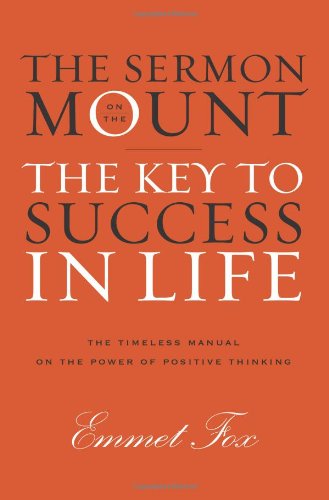
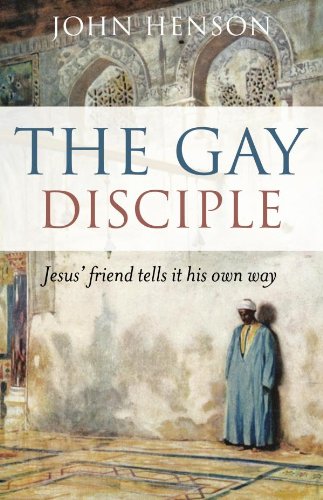
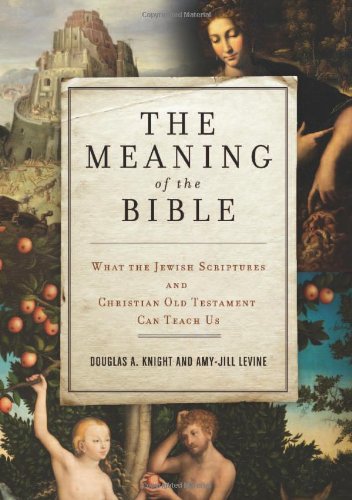
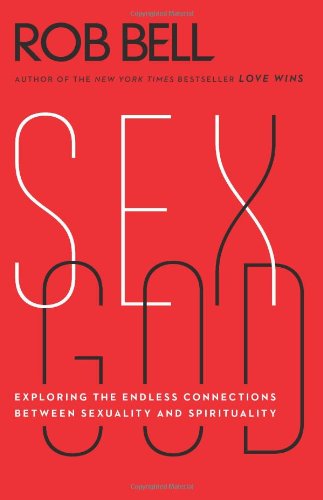

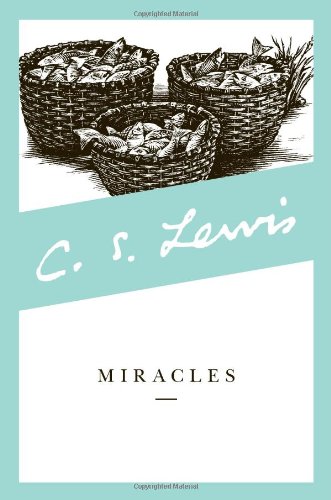
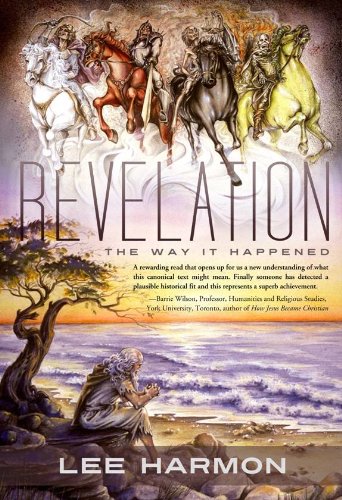
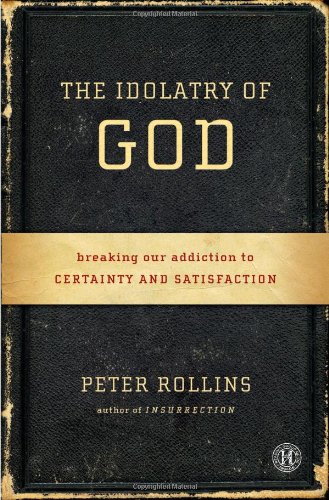

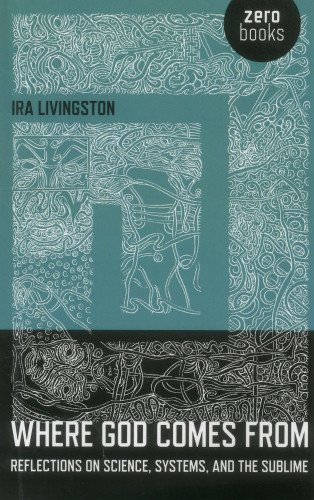
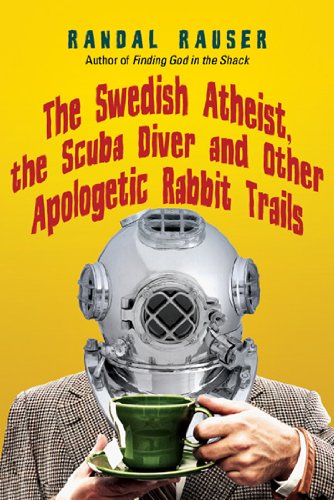
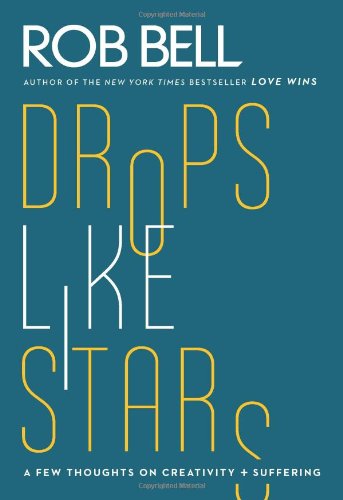
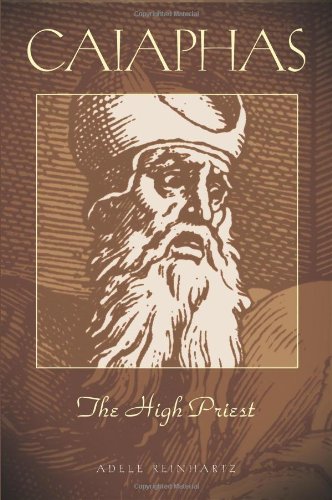
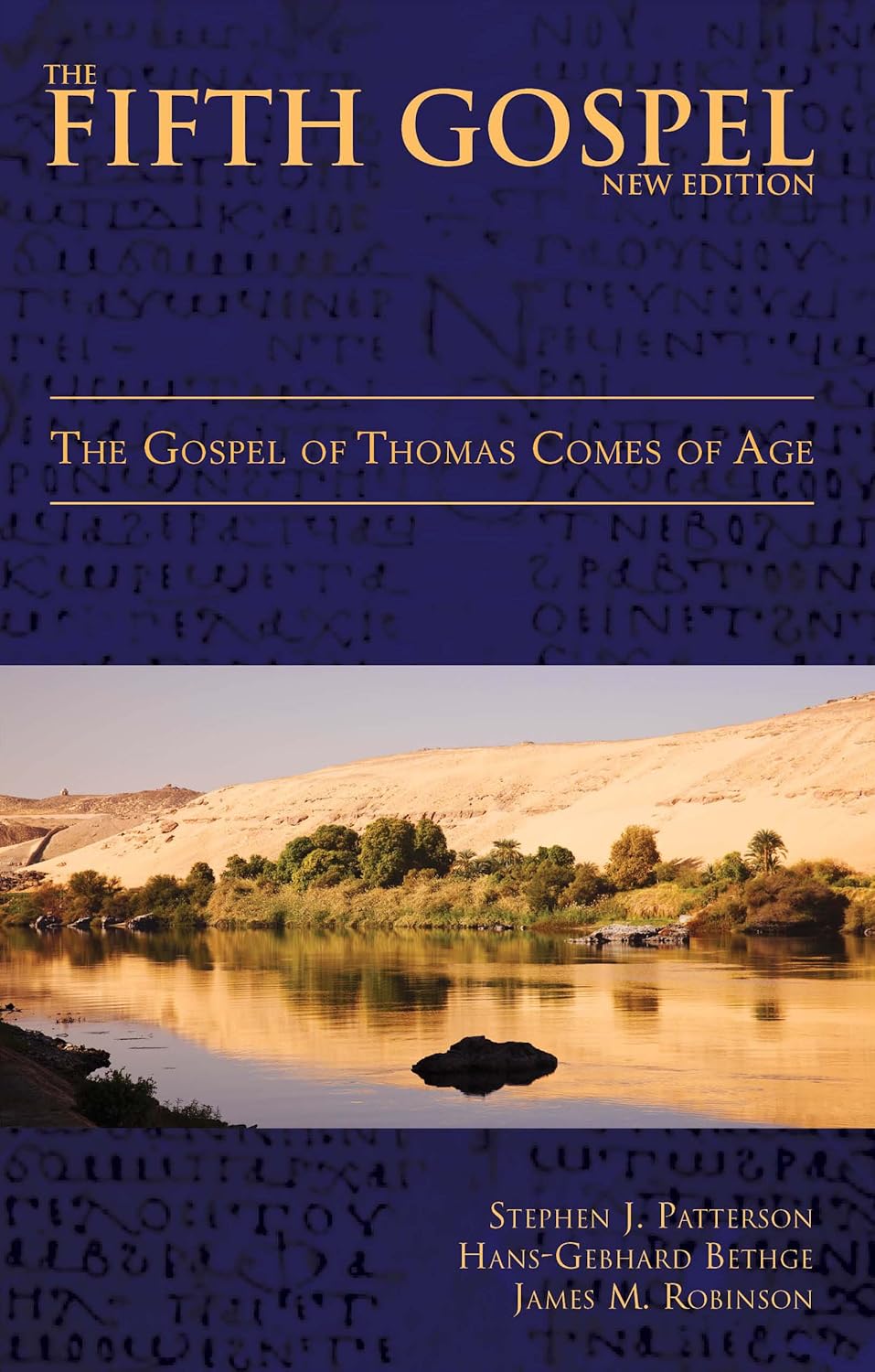
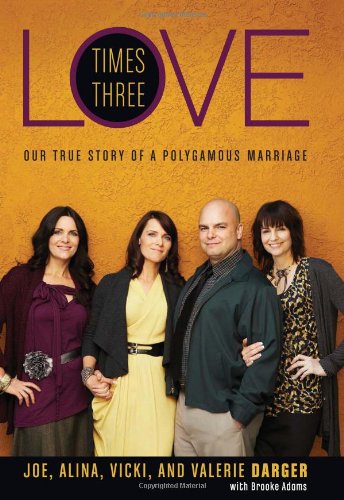
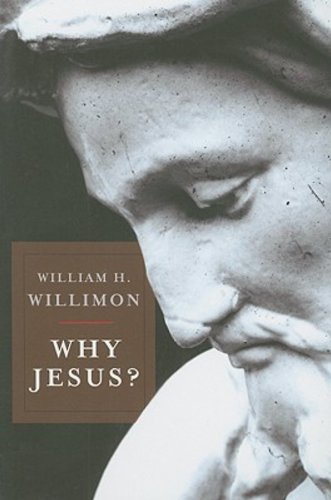
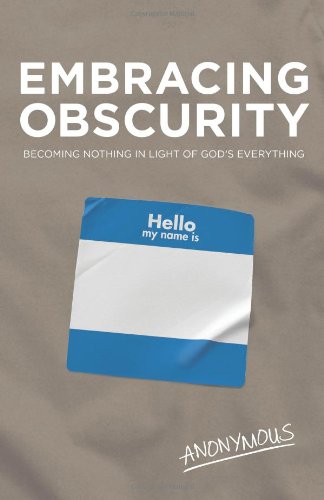
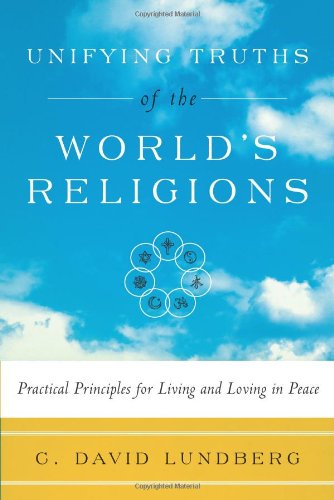

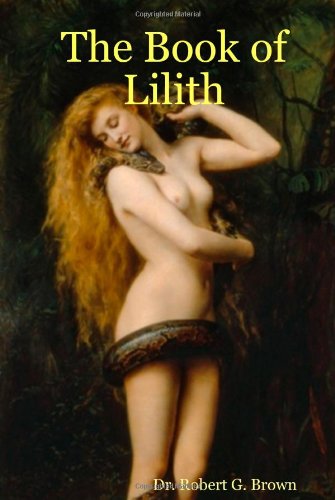









 354 Circles
354 Circles
 603 Goodreads Friends & Fans
603 Goodreads Friends & Fans

 Hello! I'm an author, historical Jesus scholar, book reviewer, and liberal Christian, which means I appreciate and attempt to exercise the humanitarian teachings of Jesus without getting hung up on any particular supernatural or religious beliefs.
The Bible is a magnificent book that has inspired and spiritually fed generations for thousands of years, and each new century seems to bring a deeper understanding of life’s purpose. This is true of not only Christianity; through the years, our age-old religions are slowly transforming from superstitious rituals into humanitarian philosophies. In short, we are growing up, and I am thrilled to be riding the wave.
I avidly read all thought-provoking religion titles. New authors: I'd love to read and review your book!
Hello! I'm an author, historical Jesus scholar, book reviewer, and liberal Christian, which means I appreciate and attempt to exercise the humanitarian teachings of Jesus without getting hung up on any particular supernatural or religious beliefs.
The Bible is a magnificent book that has inspired and spiritually fed generations for thousands of years, and each new century seems to bring a deeper understanding of life’s purpose. This is true of not only Christianity; through the years, our age-old religions are slowly transforming from superstitious rituals into humanitarian philosophies. In short, we are growing up, and I am thrilled to be riding the wave.
I avidly read all thought-provoking religion titles. New authors: I'd love to read and review your book!
 Hi! While Lee writes the articles and reviews the books, I edit, organize, and maintain the blog. The views expressed here are Lee's but I'm his biggest supporter! :-)
Hi! While Lee writes the articles and reviews the books, I edit, organize, and maintain the blog. The views expressed here are Lee's but I'm his biggest supporter! :-)
Connect With Me!